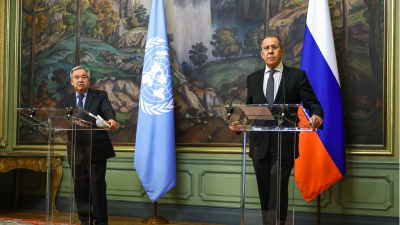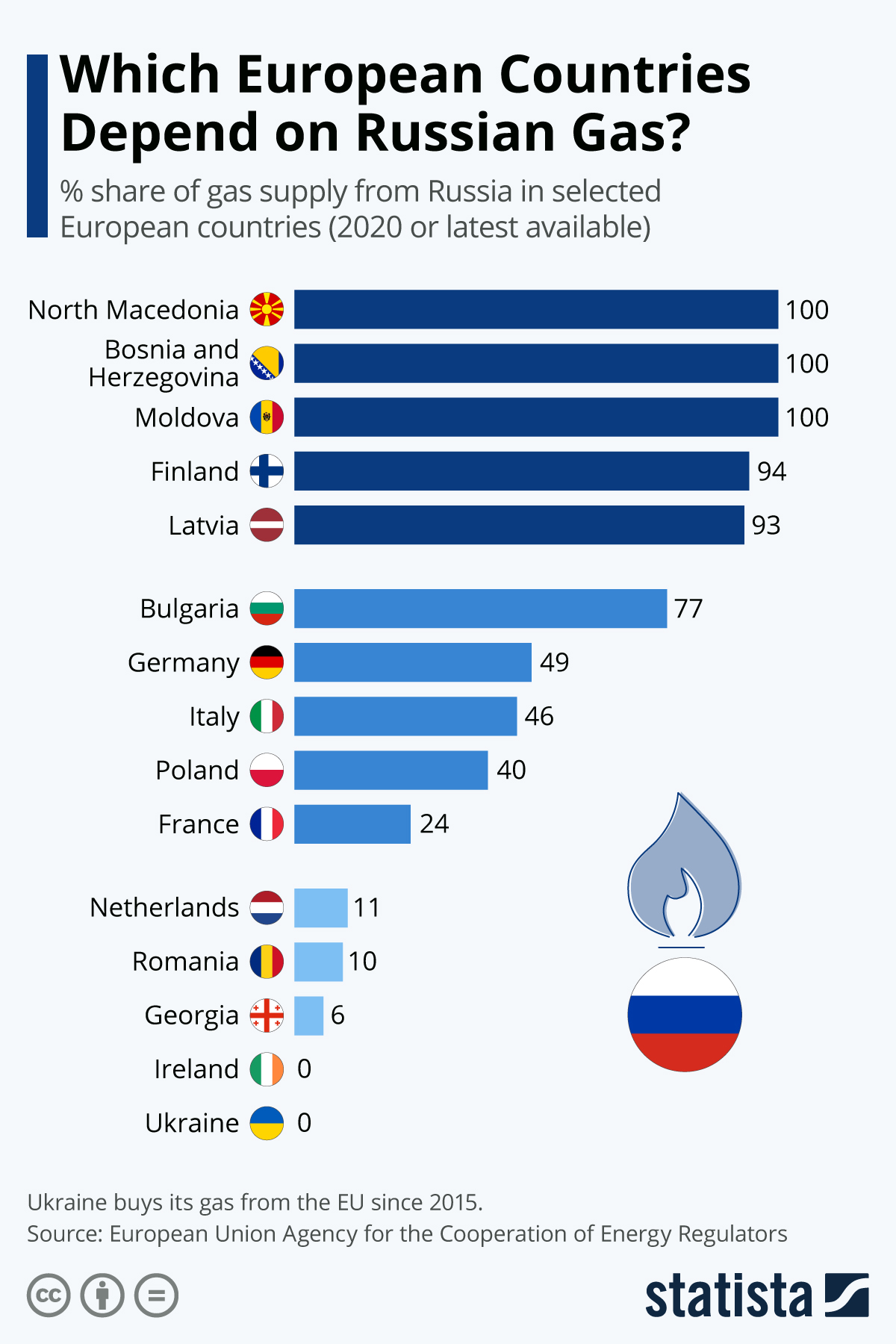Ukraine War, Military and Economic Dimensions: UN Secretary General Holds Talks in Moscow and Kyiv
The apparent failed attempt at resolving the fighting by the international body coincided with the testing of a new nuclear weapons system by the Russian military

All Global Research articles can be read in 51 languages by activating the “Translate Website” drop down menu on the top banner of our home page (Desktop version).
To receive Global Research’s Daily Newsletter (selected articles), click here.
Visit and follow us on Instagram, Twitter and Facebook. Feel free to repost and share widely Global Research articles.
***
UN Secretary General Antonio Guterres traveled on April 28 to the Russian Federation holding high-level talks with President Vladimir Putin and Foreign Minister Sergei Lavrov.
The topic of the discussions centered on the two-months long Russian military intervention in Ukraine which has been fueled by the imposition of unprecedented sanctions by the United States and the European Union (EU) alongside the massive transferal of weapons to the government of President Volodymyr Zelensky by key member-states of the North Atlantic Treaty Organization (NATO).
Two distinct positions were articulated during one-on-one talks between Putin and Guterres which were broadcast internationally. Later there was a press conference held featuring Foreign Minister Lavrov and Secretary General Guterres where differences over the Ukraine situation were aired publicly.
After leaving Moscow, Guterres travelled to the capital of Ukraine where he reviewed damage from the war which has killed untold numbers of people and dislocated millions. The U.S. has already announced the transfer of over $3 Billion to Ukraine in military and other assistance. A recent proposal by President Joe Biden has called for the Congress to approve another $33 Billion in direct aid. House of Representative Speaker of the House, Nancy Pelosi, said immediately after the Biden gesture was reported that the money should be agreed upon by the legislative branch as soon as possible.
NATO Countries Still Rely on Russia for Energy Resources
Obviously, the U.S. and NATO actions indicate that the Biden administration and its European allies are not interested in a speedy conclusion to the war in Ukraine. The sanctions imposed by the U.S. and the EU have created a crisis in Western Europe where several leading states such as Germany are continuing, out of necessity, to purchase oil and natural gas from the Russian Federation.
With Germany being the largest economy in Western Europe it cannot immediately place an embargo on Russian energy shipments because doing so would prompt a recession that would have a negative impact on other neighboring states. The Nord Stream 2 gas pipeline project has already been halted between Germany and Russia in the aftermath of the military operation in Ukraine. This deal had been long in the making and was supported by successive German governments.
Germany is reliant upon Russia for approximately 50% of its natural gas supply while France receives 25% of this energy resource from Moscow as well. Some other smaller countries are totally dependent upon Russia for natural gas including North Macedonia, Bosnia and Herzegovina and Moldova. Finland, Latvia and Serbia imports 90% of their natural gas supplies from Russia. (See this)

President Putin in the face of intensified sanctions and direct military aid to Ukraine, has demanded the payment in rubles (Russian currency) for energy exports. The Russian government during late April announced the suspension of natural gas exports to Poland and Bulgaria due to their refusal to purchase energy in rubles.
The BBC wrote recently on the European energy crisis sparked by the Ukraine war and the sanctions implemented against Moscow, noting that:
“Germany’s finance minister was keen to sound tough on Russia and appears acutely aware of the criticism levelled at his country for dragging its feet over a full energy embargo on the Kremlin. His basic message was – it is coming, but not quite yet, because it is impossible to enact immediately and would probably lead to shutdowns of large swathes of the German economy. President Zelensky used a BBC interview last week to demand an immediate embargo on Russia’s lucrative oil trade, accusing those sending euros and dollars to Kremlin-controlled oil giants of ‘trading in blood’. He singled out Germany alongside Hungary for blocking EU action. Mr. [Finance Minister Christian] Lindner said Germany would move as fast as possible but did not confirm that would be within a year.”
In regard to oil, Germany imports 34% of this vital resource from Russia while Poland receives 63% of its supply via Moscow. The Druzhba pipeline is an important conduit for Russian oil across Europe. The network was created during the time of the Soviet Union and its socialist allies in Eastern Europe in what was known as the Council of Mutual Economic Assistance (COMECON).
Druzhba is the world’s longest oil pipeline and one of the largest of such networks internationally. The network carries oil some 4,000 kilometers (2,500 mi) from the eastern part of European Russia to destinations in Ukraine, Belarus, Poland, Hungary, Slovakia, the Czech Republic, Austria and Germany. This network extends out into various other pipelines to supply its product across Eastern Europe and beyond. (See this)
Consequently, the failure by the UN chief to bring about a ceasefire in the Ukraine war portends much for the future of Europe and indeed the world. The potential for a long-term energy crisis in Western Europe combined with a worsening military situation, has illustrated the potential for catastrophic social and economic consequences throughout the region.
Russia Conducts Successful Test of New Nuclear Weapons System
Although the White House is continuously transporting offensive weapons to Ukraine to launch attacks against Russian military forces and the People’s Republics of Donetsk and Lugansk in the east of the country, Moscow spokespersons have repeatedly claimed that its strategic objectives are being met on the battlefield. Russian Defense Ministry Spokesman Major-General Igor Konashenkov claimed in a press briefing on April 30 that Aerospace Forces had bombed five Ukrainian ammunition depots which destroyed 200 enemy soldiers.
In addition, Konashenkov said that 2,700 Ukrainian tanks and armored vehicles along with 2,503 military motor vehicles have been destroyed since February 24. He went further to say that 143 Ukrainian aircraft, 112 helicopters, 660 unmanned aerial vehicles, 279 surface-to-air missiles systems, 308 multiple launch rocket systems, 1,196 field artillery guns and mortars have been eliminated. (See this)
Nonetheless, the most significant development has been the testing of perhaps the most advanced nuclear weapons system in existence anywhere in the world. Since the Russian special military operation began on February 24, Putin has warned of the need to upgrade its nuclear weapons capability. The Russian president later placed the country on nuclear alert.
The Caspian News said of the current situation:
“On April 20, Russia test-launched Sarmat from Plesetsk cosmodrome on the edge of the Russian Arctic, which Russian President Vladimir Putin said would make Russia’s enemies ‘think twice.’ Moscow’s test launch of the next-generation Sarmat ICBM came amid an extreme geopolitical tension between Russia and the West over the ongoing war in Ukraine…. Earlier last week, [Russian space agency Director General Dmitry] Rogozin claimed that Sarmat would be much more powerful than other strategic weapons, including the U.S.-made Minuteman-III, an ICBM with a maximum range of 13,000 km, and the capability of carrying a payload of three reentry vehicles. ‘This is a missile that is much more powerful than other strategic weapons, including the Minuteman-III missile, which is in service with the United States. Both in terms of global reach and the power of warheads that can be delivered to the territory of an aggressor,’ Rogozin said in an interview with Rossiya 24 TV channel. Russia owns the world’s largest nuclear weapons stockpile, with an estimated 6,257 warheads. Moscow reserves the right to use nuclear weapons in two cases: in response to a nuclear attack or the use of weapons of mass destruction against Russia or its allies or if the existence of the Russian state is threatened.”
Therefore, there are strong indications that the Russian Federation is preparing for a protracted struggle over the expansion of NATO into Eastern Europe. The Biden administration is risking the economic and military stability of the capitalist states in this attempt to secure Washington’s hegemony over the European continent both East and West.
In fact, Secretary of Defense Lloyd Austin stated during a surprise visit to Poland on April 25 that the U.S. objective in the war was to weaken Russia’s military capability by incapacitating its ability to engage in operations outside of its borders. Such utterances can only enhance the degree of tensions and hostility in Ukraine.
People inside the U.S. and Western Europe must objectively assess the impact of the White House’s war policy towards the Russian Federation. Both the Democratic and Republican parties appear to be in favor of the current strategy which has led to the destruction of Ukraine and the threat of large-scale conventional and nuclear warfare. Only a mass-based and well- organized antiwar movement in North America and Western Europe can pose the much- needed domestic challenges to the dangerous course taken by the imperialist states.
*
Note to readers: Please click the share buttons above or below. Follow us on Instagram, Twitter and Facebook. Feel free to repost and share widely Global Research articles.
Abayomi Azikiwe is the editor of the Pan-African News Wire. He is a regular contributor to Global Research.
Featured image: Russian Foreign Minister Lavrov holds press conference with UN Secretary General Guterres (Source: Abayomi Azikiwe)

